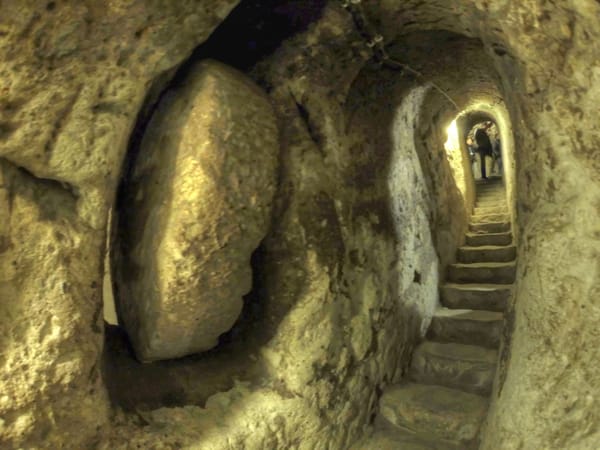Freedom, Texas style
What low taxes and no "burdensome" regulations gets you in the long run
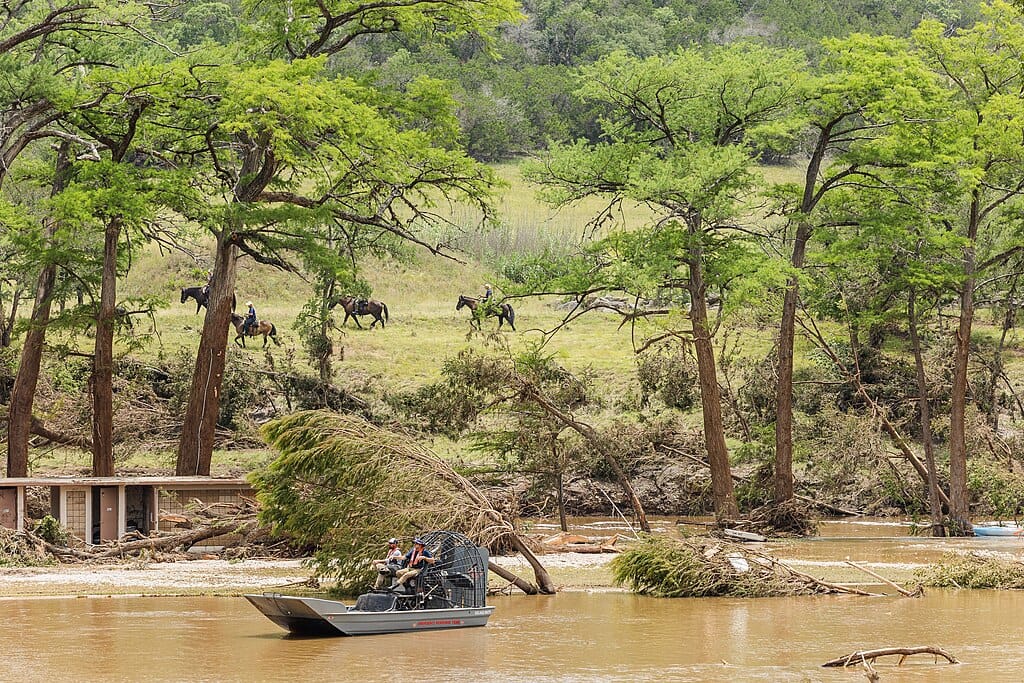
A blogger that I follow writes about her life as an immigrant and rural homesteader in a small South American country.
I love to read her updates about her life on her small farm, with chickens, goats, a huge garden. I live through her vicariously from my apartment in central Berlin, where I must content myself with balcony-grown tomatoes, the occasional cucumber, and walking our two dogs on leashes in public parks.
But one recent post brought me up short.
In it, she talks about how she and her partner didn't need a permit from any government entity to replace their aging septic tank. And they didn't hire a "special guy who is certified to put in tanks," either.
"The guy at the hardware store said this guy puts in septic tanks. Call him; we did. He came, and that was it."
"Living here, I can do what I want on my property without my big brother looking over my shoulder," she added. "I can do what I want on my property without people telling me the rules."
Well, that's all well and good, I thought.
Until your non-permitted septic tank installed by Random Hardware Store Guy maybe turns out not to have a proper leach field and contaminates the groundwater.
But then you'll probably tell everyone – if you live to do so – that getting typhoid was just a freak occurrence. Something that just happens sometimes.
After all, life is never without risk.
Some risks aren't worth taking
You don't have to move to South America, though, to be free of the kind of burdensome, nanny-state regulations that prevent you from "doing what you want on your property."
You could move to Texas.
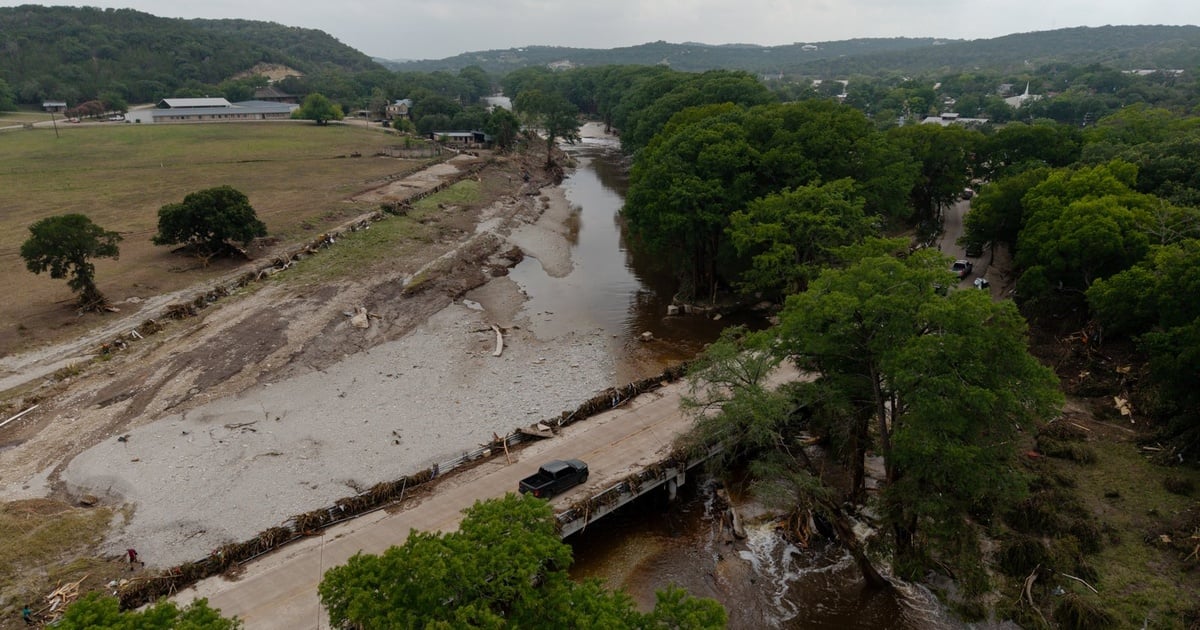
If you want to build a vacation house in a flood plain - outside of most major cities - there's no regulation to stop you. In fact, Texas counties do not have the regulatory power to enact any kind of zoning or building code enforcement at all.
You are free to build a state-of-the-art mansion on stilts and you're free to build a death trap. It's your property; your choice.
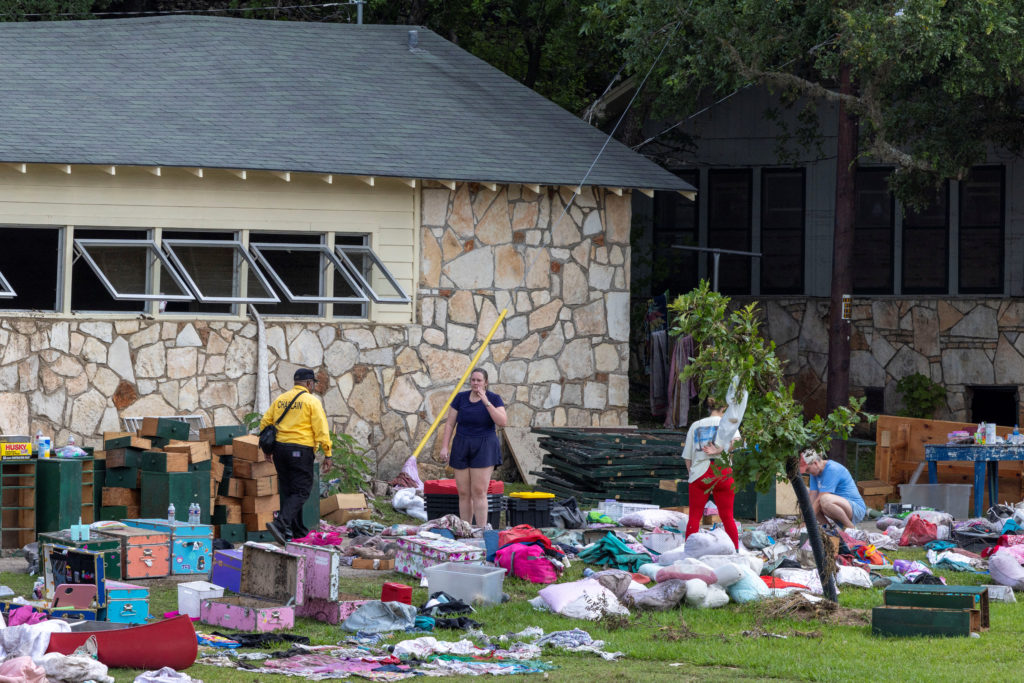
And you'll keep more of your money in your pocket, because property taxes are low. So low, they support only the bare minimum of public services – not things like river gauges or flood warning sirens.
"An examination of transcripts since 2016 from Kerr County’s governing body, the commissioners court, offers a peek into a small Texas county paralyzed by two competing interests: to make one of the country’s most dangerous region for flash flooding safer and to heed to near constant calls from constituents to reduce property taxes and government waste."
Surveys of residents frequently show they are happy with this situation.
Many residents of Kerr County, for example, repeatedly told the commissioners court that they did not want county money spent on expensive flood-detection and warning systems – and they did not want to accept federal money for this purpose either.
It's important to note commissioners did not, in fact, send the money back. They spent the funds on other things--pay raises and radio upgrades for the sheriffs' department and also a walking path.
But are residents of these areas really making an informed choice?
Disasters averted, disasters discounted
I see large parts of the United States slowly sliding out of what we used to call the "first world" – the group of modern, developed countries whose citizens could count on a high standard of living – clean air and drinking water, safe construction standards, reliable public services – just by virtue of living there.
And I don't think people are prepared.
When you have been raised to take things like potable water, a stable electrical grid, and public safety warnings for granted – you're not prepared to live in a place where these things are now your individual responsibility. Things you can have as long as you do all of your own due diligence and have the money to pay for it.

Texas doesn't just skimp on flood preparedness. A failure to appropriately winterize power infrastructure was blamed for a 2021 power grid failure that left millions without electricity during the state's worst winter storm in decades. Statewide, 246 deaths were attributed, directly or indirectly, to the outages.
And because so many people were raised in a society that didn't experience large-scale deaths from disease epidemics, industrial accidents or natural disasters--they don't see the value in all of the regulations that are designed to prevent them.
You don't see the benefit until it's not there.
I doubt the parents who sent their children to Camp Mystic realized that it was constructed in such a dangerous place. I wouldn't have.
I would have assumed no one would have authorized the construction of a camp for children inside an area prone to flash floods anywhere in the United States.
I wouldn't have thought to check whether the camp was properly insured or whether it was accredited, because I am used to assuming that it wouldn't be allowed to operate otherwise.
Lives are cheap when everything is dollars and cents
Increasingly, government officials seem to see their duty only as holders of the public purse--and follow the oft-repeated mantra to "make government run like a business."
The problem with that is that businesses only spend money if leaders think it will be profitable - a good return on investment (ROI). Things like advanced flood detection and warning systems just cost money - no ROI. (It being hard to quantify the cost-benefit of residents who don't drown versus those who do.)
What this Libertarian, low-regulation, 'every man for himself' mentality also misses is that we are all connected. Truly, no person is an island.
Flood zone maps are not some government plot to generate higher premiums for insurance companies.* They have been created using years of accumulated data and scientific expertise to help people (and, yes, insurance companies) understand the risks of building in a certain area.
Even so, many experts say that the FEMA maps are outdated and don't indicate the true risk of many areas thought to be safer.
People who construct buildings in a known flood-prone area are voluntarily assuming a high-degree of risk. But they are also increasing the risks to everyone around them.
What's more - building in flood plains makes flooding worse. We have known this for ages. It's why many cities and states have regulations restricting development there.
So, if you are someone who built a river house well outside the 100-year flood plain map, but your county allowed lots of other construction within it - you aren't safe, either.
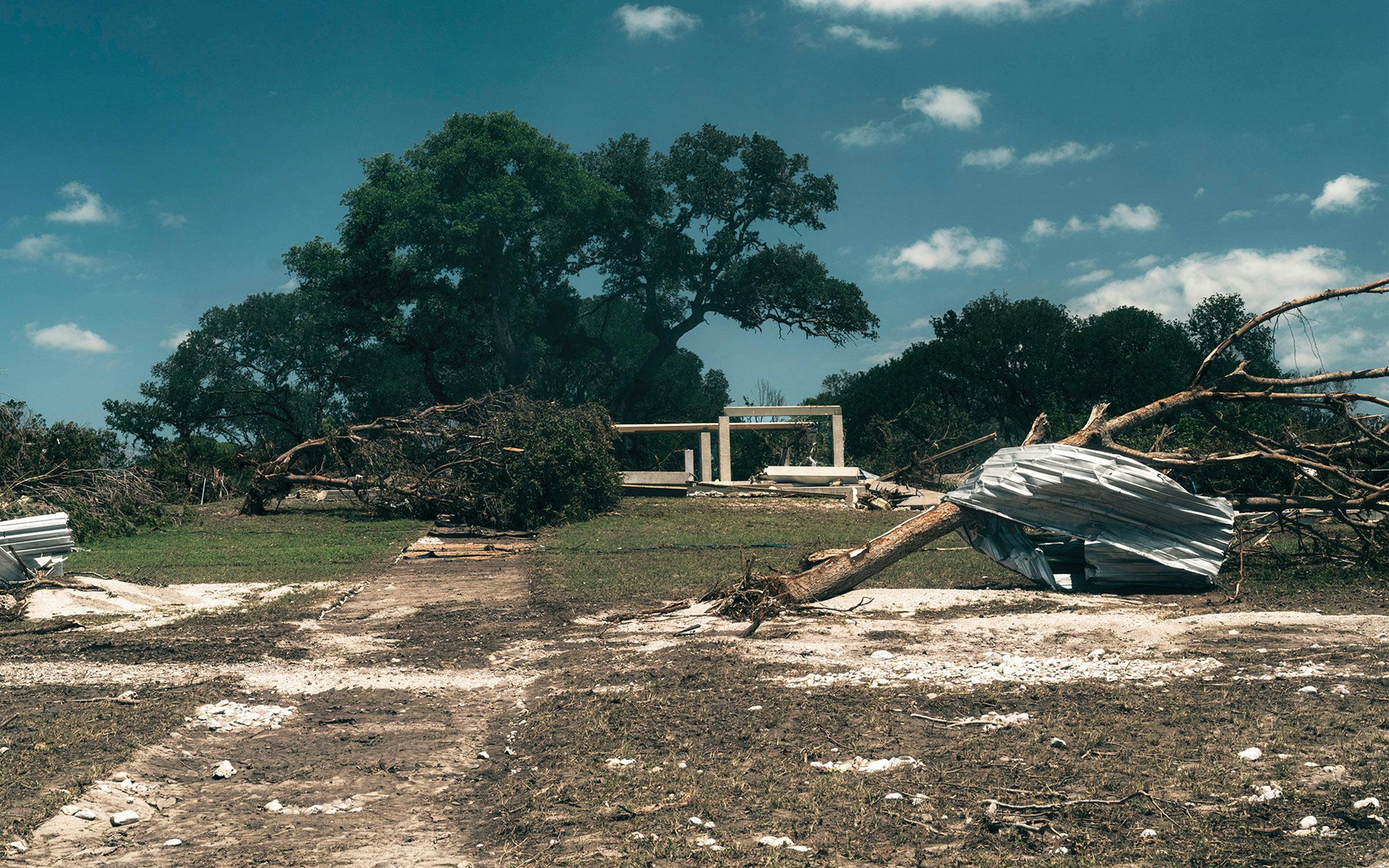
Unless you literally live on an uninhabited island, what you "do on your property" affects your neighbors and vice versa.
'No one could have predicted this'
I see some version of this statement all over social media - 'this was a once-in-a-lifetime flood, no one could have predicted the river could overrun its banks so quickly for so long.'
Except that it wasn't. Many people had been warning for years of the risks of a catastrophic flood in that area along the Guadalupe River.
In 1987, another flood along the same part of the Guadalupe killed 10 teenagers and wounded 33 other people. And it was at least the fifth time in the last 100 years that flash floods in that area have resulted in deaths. Kerr County leaders admit the region is known as "flash flood alley."
More recently, a 2015 flash flood in nearby Wimberly, Texas, killed 13 people and destroyed 400 homes. Residents there were caught off guard when, in the middle of the night, the Blanco River rose 45 feet in under an hour.
Following that devastating disaster, Kerr County emergency management officials began warning county leaders about the danger– their county had similar geography and even fewer flood prediction and prevention measures in place. It had shut down its older river monitoring system because most stations were not accurately reporting water levels.
When leaders balked at the $1 million+ price tag for a new system, the officials asked to apply for government grants to support it. But, because the county lacked an updated hazard mitigation plan, they were turned down by the state.
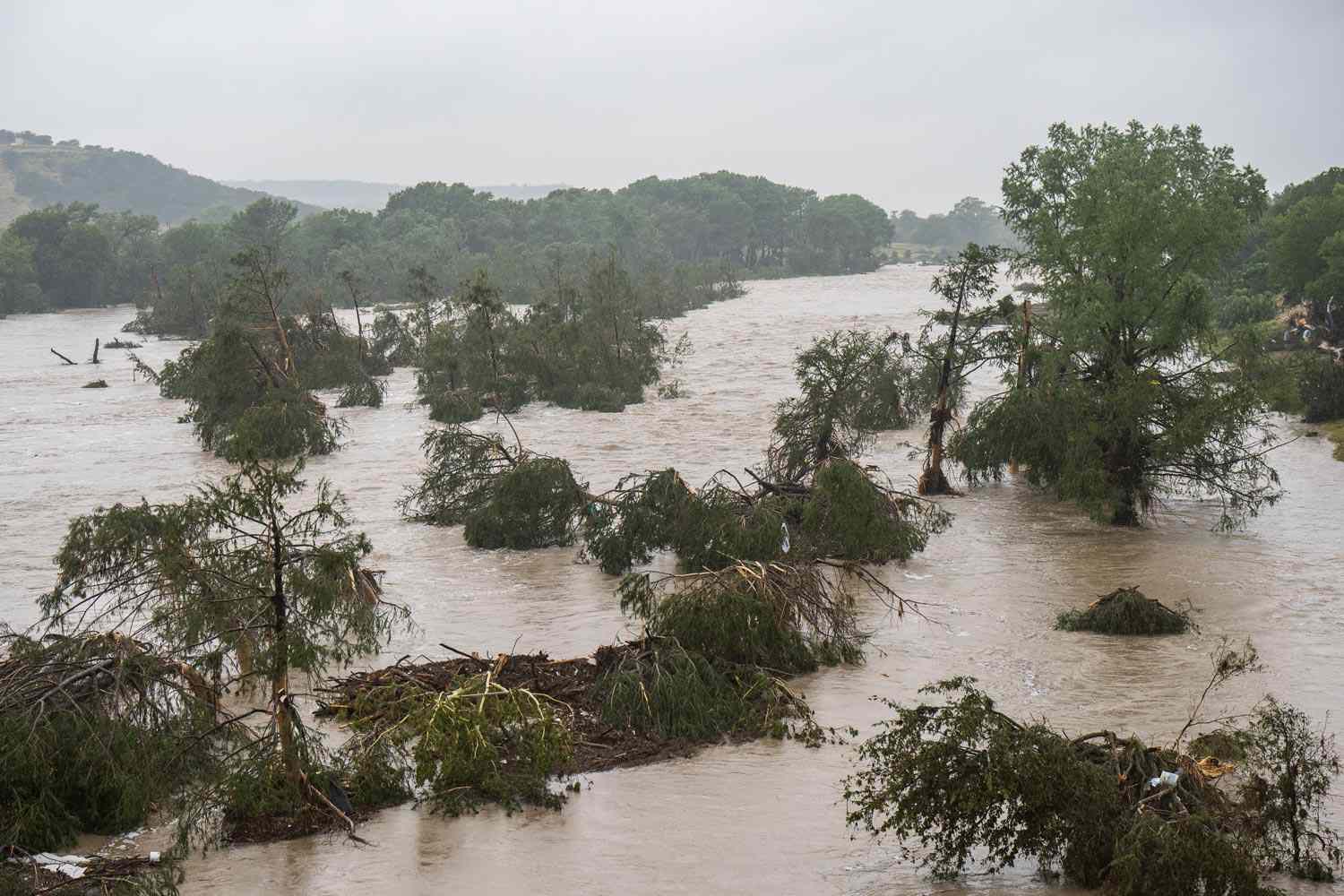
Some people have called criticism of Kerr County leaders in poor taste, coming so soon on the heels of such an overwhelming tragedy.
But it's not disrespectful to hold elected leaders accountable for their actions. It is more disrespectful to the victims of this flood and their families – if we simply continue on as before, refusing to take any lessons from what happened.
No one thinks the Kerr County court of commissioners intended for people to drown or that they didn't care. They felt pressured by their constituents to, above all, not waste money. So, they kept a tight rein on the purse strings, crossed their fingers, and just hoped everyone's luck didn't run out.
We must all realize that when you elect local leaders and tell them the only thing you care about is that keep taxes and regulations low - you are voting for exactly this - to roll the dice.
It's true that there may have been no way to prevent all of the deaths due to this disaster. But it seems clear that if there had not been so many people in a high-hazard zone to begin with, and/or those people had earlier warning of the impending flood, or county officials had publicized and practiced evacuation procedures, the death toll would almost certainly be much lower.
When I was growing up, we were taught "an ounce of prevention is worth a pound of cure."
Now, it seems like the message we are sending our children is "place your bets."
*The official name of the FEMA flood zone maps is Flood Insurance Rate Maps (FIRM).







